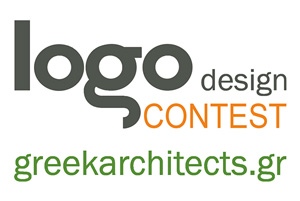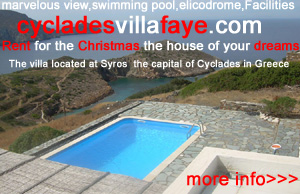STUDENTS PROJECTS
PROJECTS2013

20 October, 2014
Prepesinthos
Giving Prominence to the Archeological Site of Despotiko.
Student: Karountzou Paraskevi, Sideri Aggeliki
Supervisor: Athanasios Spanomaridis
University of Patras - School of Architecture
Presentation date: 27-02-2014
The site is created the moment that man interferes in nature. For the man, nature is an unknown surrounding he is trying to annex. As soon as man annexes nature, he is led to its inhabitance. Every site has a unique combination of characteristics, which give the site a special identity. We looked for a site where historical memory and natural landscape coexist.

The site is created the moment that man interferes in nature. For the man, nature is an unknown surrounding he is trying to annex. As soon as man annexes nature, he is led to its inhabitance. Every site has a unique combination of characteristics, which give the site a special identity. We looked for a site where historical memory and natural landscape coexist.
A place like that is the uninhabited island of Despotiko. It is identified as ancient Prepesinthos, where an important temple of Apollo with nationwide reputation had flourished in 6th century BC. The temple is placed in the port in the northeast side of the island where it is protected from the wind. Through the experience of the island, we recognize two basic needs. The first is to protect and give prominence to the archaeological site and the second, to create the circumstances for human presence on the island. The memory and the history of the site conciliate with nowadays' needs, having as common denominator the natural landscape.
The access to the island is through Antiparos. Occasional private visits take place during the summer. Also, annual excavations are performed by the Archaeological Services. The lack of infrastructure, makes difficult both the excavations and the visits. In addition, the continuous increasing of findings on the site creates the need of space for the latter to be stored and space to receive the visitors. The only human presence on the island is a shepherd. His house, the sheepfold and some other auxiliary spaces are the only structures on the island.
Our aim is to create spaces which will adjust to the needs of the site and the people. The coexisting of both archaeologists and visitors in the same space but in different time, makes the project very special because of its variation in different seasons. Nine quarries exist in Despotiko, some of which form an imaginary circle which surrounds the temple. We choose 3 spots, which differ in quality and views, as observatories. We link the observatories to create two routes having the archaeological site as a reference point.
We recognize one main right angle which came from the temple, we rotate it and use it for the basic lines of the project. The main idea of the design is the chronological diagram of the history of Despotiko. We transform it into a section and then into a plan, where the most important periods of history match space and roots, with aim to perceive the character of the site.
Having this as a basis, we design a museum for the protection of the archaeological findings, laboratories for the archaeologists-researchers, as well as guestrooms for their stay. The main spaces of the project are completed with an open theater, which is formed by plateaus which lead to the entrance of the museum.
All the interventions are carried out in different levels, either higher or lower of that of the archaeological site's. The structures are developed around the temple, keeping the distance required. We create different levels of realization of the archaeological site. In essence, the archaeological site constitutes the outdoor space of the museum, that is its courtyard.
The entrance to the various spaces of the structure is achieved through semi-outdoor spaces. There is a sequence of space qualities from outdoor to sheltered and then to indoor spaces. Our project is designed to be in use all year long, with spaces which are outdoors or indoors corresponding to the season and the users. So, we create a museum with semi-sheltered elements which is adjusted to the site and its needs.
The aim of our proposal is a mild intervention, which highlights the natural site, makes the archaeological site prominent and covers nowadays' needs. Two scales of intervention can be distinguished, one that regards the greater area of study and a smaller that focuses on the archaeological site and the structures that surround it. Essentially, we consider the "dwelling" of Despotiko Island necessary in order to point out the spirit of the site and its historic importance.


















